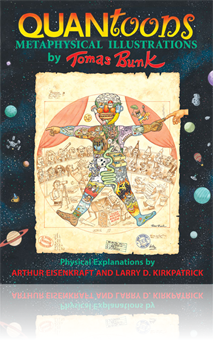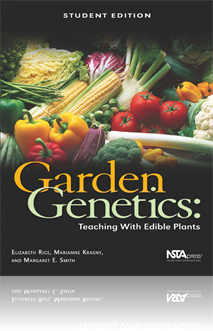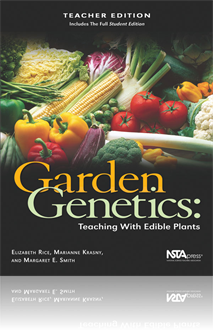All Resources
Book Chapter
Millions of dollars of research and experimentation have been invested in car designs to minimize the adverse effects of air resistance. And here is the American household negating all efforts to maximize gas mileage with outdoor gear strapped to t...
Book Chapter
As a police cruiser drives by with its siren sounding, the pitch of the siren decreases. The same thing happens at the Indianapolis 500 as a race car passes you. The pitch of the engine is steady as the car approaches, decreases as the car passes, an...
Book Chapter
He’s full of hot air! We all know what this expression means. In this chapter, students of physics take a more substantial look at hot air knowing that hot air rises and is one means by which a hot-air balloon can soar above. The hot-air balloon be...
Book Chapter
Michael Jordan makes it all look so easy. The ball gracefully glides in its arc and swishes through the net. All that polish from years of practice and no formal physics. Can a mathematical approach help to replicate Jordan’s skills? Definitely not...
Book Chapter
Have you ever taken your bathroom scales to an elevator for a ride? This is guaranteed to start an interesting conversation and you will be advancing the cause of physics at the same time. This chapter features several scenarios to explore physics i...
Book Chapter
The complexity of the human eye confounded Darwin. But his concept of adaptation and natural selection guided a steady stream of biologists who have collectively depicted a series of 40 steps, each a small advantage over the prior, which describe ...
Book Chapter
We are all familiar with images formed by mirrors and lens. In fact, we often pay to see images produced in special ways. But what is an “image charge?” Does it have anything to do with optical images? This chapter presents a scenario to help a...
Book Chapter
The technological products of the discovery of fission, notably the atomic bomb and nuclear power, have greatly elevated its importance in our culture. The chore in this chapter is somewhat modest in comparison to both the science history and the po...
Book Chapter
One person described how the bedroom wall moved across the room. Another watched as a huge wave of concrete traveled along the highway. We all saw the massive destruction when one bridge roadway collapsed on top of another. The earthquake in the San...
Book Chapter
What happens when you are given a problem that is either too complex to solve or one where there are crucial ingredients missing? Many problems are very complex and cannot be solved if all the complexity is included. If, however, the problem is simp...
Book Chapter
Newton was certainly not the first person to see an apple fall from a tree. He may, however, have been the first to imagine the apple and the Moon to be one and the same. To Newton, the Moon was merely a much larger apple very much further from the ...
Book Chapter
This chapter focuses on finding the magnetic field. In the Biot-Savart law, the magnetic field is perpendicular to both the current element and the radiusvector. The magnetic field points out of the plane determined by the current element and the po...
Book Chapter
The analysis of the rolling wheel has become much simpler. The kinetic energy of the rolling wheel is equal to the rotational kinetic energy of the wheel about its center of mass plus the kinetic energy of the entire mass moving with the velocity of...
Book Chapter
Given a flashlight battery, a flashlight bulb, and a single piece of wire, hold them together to make the bulb light. Adults have taken more than an hour to light the bulb! And yet, this is the first activity in a lesson on circuit electricity for f...
Book Chapter
Visually, if not straight lines, then does nature favor curves? All curves are not equivalent. This chapter embarks on a brief tour of some simple physics with an eye toward the curves to discover along the way. ...
Book Chapter
Relativistic conservation laws
Conservation laws are everywhere! Conservation of energy is one of the most useful laws in all branches of science. Other conservation laws in physics include charge, momentum, angular momentum, and those associated with the more esoteric baryon and...
Book Chapter
How does a good theory get judged? It must first be able to explain what the prevailing theory has successfully explained. It must also be able to explain some known phenomenon that the prevailing theory is unable to explain. When that theory is abl...
Book Chapter
The search for the fundamental building blocks in nature has gone on for more than two thousand years. Aristotle felt that all the materials around us were composed of varying quantities of four basic elements—earth, fire, air, and water. In hinds...
Book Chapter
Sources, sinks, and gaussian spheres
Conservation of mass requires that the flow of mass into the volume be equal to the flow of mass out of the volume. Another way of stating this is that the net flow of mass—or flux—through the surface must be zero. This is true unless there are ...
Book Chapter
Archimedes’s law was a great achievement. Everybody knew that an object dropped in water made the water level rise (that is, it displaced some water). But Archimedes was the first to recognize that the amount of water displaced is related to the o...
Book Chapter
Up to now, all of the roller coasters of the world use a continuous track. But that does not restrict our imagination. In this chapter, we imagine that the top portion of the track is removed in a vertical loop, creating the so-called "topless rolle...
Book Chapter
Imagine paddling in a rowboat from one shore to the opposite shore with no current. The trip takes you 15 minutes. If you return to the river and venture across again, paddling to the opposite shore with the same strokes, but with a stiff current dra...
Book Chapter
It Skips a Generation: Traits, Genes, and Crosses (Student Edition)
Long before they understood why the strategy worked, farmers knew how to crossbreed plants to obtain more desirable traits. Even today, a farmer who knows nothing about genetics can tell you that when a blue type of corn crosses with a yellow one, t...
Book Chapter
It Skips a Generation: Traits, Genes, and Crosses (Teacher Edition)
Many of the early discoveries in genetics occured in plants. Plants have a few special characteristics that make them ideal for studying genetics. From one known cross, many genetically similar "siblings" are produced. Building from Gregor Mendel's c...
Book Chapter
Bitterness and Non-Bitterness in Cucumbers: A Story of Mutation (Teacher Edition)
In this chapter, students explore the history of the bitter gene in cucumbers, which was found in a genebank and traded internationally between cucumber breeders. The students then explore transcription, translation, and the DNA basis for different t...
Book Chapter
Survival Strategies (Teacher Edition)
This chapter focuses on ecological principles of plant defenses and insect adaptations to these defenses. Insects either are generalists, often deterred by plant chemical defense compounds, or they are specialists that are attracted to the defense co...
Book Chapter
Domestication: Evolving Toward Home (Teacher Edition)
This chapter explores the concept of domestication and the changes that occur in plants as they transition from wild to cultivated. Domestication is a form of evolution driven by artificial selection rather than natural selection. Two theories of evo...
Book Chapter
The Risks of Improvement: Genetic Uniformity and an Epidemic (Teacher Edition)
This chapter explores the role of genetic diversity in crops. Using hybrid corn as an example, it discusses selection—the genetic narrowing that accompanies gains in traits like yield and disease resistance—and the ecological and evolutionary con...
Book Chapter
Genetic Engineering (Teacher Edition)
This chapter focuses on genetically engineered foods. Bt corn has bacterial genes that encode a protein toxic to many insects. Therefore the corn plant makes its own pesticide. This chapter explores the DNA basis for this genetically engineered plant...
Book Chapter
Sweet Genes in Corn (Teacher Edition)
This chapter begins with consideration of sugars made by the plant during photosynthesis and the movement of those sugars within the plant by diffusion along concentration gradients and by other processes. By exploring the genetic basis of sweet corn...
Book Chapter
Centers of Diversity (Teacher Edition)
This chapter discusses genetic diversity of food plants in the context of the geographic regions from which they originate. The center of origin is the site where the plant was domesticated. The center of diversity is the site where maximum genetic d...
Book Chapter
Quantitative Traits (Teacher Edition)
This chapter begins with single-gene Mendelian traits and compares them to quantitative traits where many genes are involved in determining phenotype. Quantitative trait loci (QTL) studies use molecular markers to pinpoint which sections of DNA are a...
Book Chapter
Bitterness and Non-Bitterness in Cucumbers: A Story of Mutation (Student Edition)
The bitterness of cucumbers is caused by a protein called cucurbitacin. The protein is found in the stems and leaves of many cucumber plants and this is why some people remove the skin and seeds before eating them. The objective of this activity is t...
Book Chapter
Survival Strategies (Student Edition)
Plants are part of complex ecosystems. They must defend themselves from predators. They also must compete with other plants for light, soil, nutrients, and water. Over time, plants have evolved many strategies for defense and competition. In this cha...
Book Chapter
Domestication: Evolving Toward Home (Student Edition)
Domestication is literally the process of bringing an organism—animal or plant—into the home. It's easy to see the evolution from wild wolf to docile dog as domestication. A domesticated plant is one that is dependent on humans for its survival,...
Book Chapter
The Risks of Improvement: Genetic Uniformity and an Epidemic (Student Edition)
In 1970, an epidemic swept through corn crops in the United States. The farmers alleged that the seed companies had behaved irresponsibility in releasing corn varieties that all had the same gene for T-cytoplasm, and that they should be financially r...
Book Chapter
Genetic Engineering (Student Edition)
Genetically engineered crops cross boundaries that traditional crops do not and pose new and challenging regulatory issues. In the United States, a number of government agencies regulate food, plants, pesticides, and agriculture. Who regulates a plan...
Book Chapter
Sweet Genes in Corn (Student Edition)
One of the joys of summer is sweet, fresh, crisp corn on the cob. Most corn is starchy and usually does not taste sweet. Why isn't corn on the cob starchy? What makes sweet corn sweet? Find the answers in this chapter by designing an experiment to te...
Book Chapter
Centers of Diversity (Student Edition)
What country do you think is the origin of the tomato? In this chapter, tables and graphs are used to understand the relationship between food plants and the biomes they originated in. Plant centers of origin are related to the ecology of geographic ...
Book Chapter
Quantitative Traits (Student Edition)
This chapter focuses on Quantitative trait loci (QTL) studies—a way of investigating quantitative traits where many genes have an effect on a trait. The studies help plant breeders find the genes involved in quantitative traits that are controlled...





